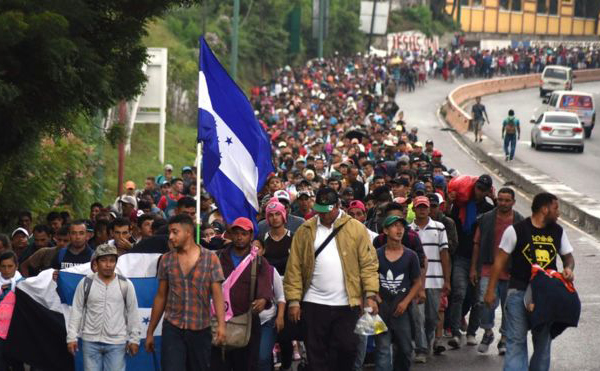
Leslie hadn’t had much opportunity to mention her religious affiliation. She and I worked together as producers for a TV Ontario show, back in the 1970s, and the subject of her faith never came up. Then, over a coffee one day, she happened to mention her activities on the Sabbath and I realized she was Jewish. But she surprised me with this admission.
“I never really feel very comfortable talking about my faith to non-Jews,” she said.
“Why not?” I asked, and added, “This is Canada.”
“Even here,” she continued, “I’m often looking over my shoulder.”
I was stunned by her feeling of vulnerability and fearfulness. In my life and my career, I have had the good fortune to work and socialize with people of all colours, lifestyles, backgrounds and creeds. I guess it’s the multicultural nature of journalism and the diverse reality of the Greater Toronto Area that have given me access to people of Jewish faith, Bahá’ís, Buddhists, Muslims and Christians from every corner of the globe.
And while I’ve often caught myself stopping and staring at religious symbols or spiritual books I haven’t seen before, I’ve hardly ever thought twice about whether this race, that lifestyle, or those faithful, blended into Canadian life or not. No question. In Canada, “We all came from somewhere else.” Nobody is an outsider.
That’s why, when a Jewish spokesman was responding to this week’s massacre of eleven people at the Tree of Life Synagogue in Pittsburgh, I felt extremely uncomfortable when he summed up his own feeling of vulnerability. “There’s a resentment against ‘otherness,’” he said. “Even being a Jew makes us feel like outsiders.”
Dictionaries define “otherness” as “the quality or state of being different; something that is other is different.” And being a professional wordsmith, I recognize its presence all around. The problem of some among us feeling like outsiders, I think can be traced to the current attitudes of political populists capitalizing on xenophobia. It festers too on the unbridled social-media websites, such as “Gab,” the so-called free-speech platform on the internet where the man accused in the synagogue slayings posted anti-Semitic epithets.
Consequently, hate speech – which is against the law in both the U.S. and Canada – has flourished, giving white supremacists, neo-Nazis, Holocaust deniers and other extremists plenty of profile. I lump Donald Trump’s recent pronouncements about his pride in being “a nationalist” in the same category. It appears, as the president attempts to rally his base support for the upcoming mid-term election in the U.S., that as he sees it only certain Americans are fit to be citizens; the rest – the others – remain outsiders at best, criminals otherwise.
Case in point: Since Oct. 12 of this year, originally 160 people, now as many as 7,000 refugees from such Central American nations as Guatemala, El Salvador and Honduras have trekked northward. This caravan of desperate people, apparently fleeing persecution, poverty and violence in their home countries, has attracted massive media attention, and not surprisingly the rhetoric of a U.S president intent on building a wall to keep them out, if not, sending in the army to keep them south of the U.S.-Mexico border.
President Trump has again categorized these refugees as “criminals” and undesirables. Little evidence of such behaviour exists. In fact, the so-called “Turn-back Policy” of the U.S. Attorney General’s department has been challenged by the Southern Poverty Law Center (in Montgomery, Alabama) which has accused U.S. immigration officials of delaying or ignoring “access to the asylum process.”
Lady Liberty, the statue that has stood at the entrance to the New York City harbour since 1886, must be creaking with the corrosion of exclusion. The statement beneath her beacon of freedom – “Give me your tired, your poor, your huddled masses yearning to breathe free, the wretched refuse of your teeming shore. Send these, the homeless, tempest-tossed to me, I lift my lamp beside the golden door!” has lost its lustre.
I’ve always thought that true democracies invited otherness. Hence, why would so many of the countries in the Western Hemisphere have routinely and universally opened their doors to immigration for the past 300 years. Canada is not perfect, but we have most often fought the notion of building barricades against otherness.
My friend Leslie and I spent two years together at TVO, back in the 1970s. We enjoyed working side-by-side on educational programming and because of that productive professional relationship, she and her husband and my wife and I enjoyed a social connection as well. One day after her comment about looking over her shoulder as a Jew in Canada, I challenged her. “But you’re safe here,” I said. “You shouldn’t worry.”
She nodded, but then made another stunning admission to me. “Maybe,” she said, “but I still keep an open-ended airline ticket to Israel in my safety deposit box.”
Wherever that “resentment against otherness” exists, in fact none of us is safe. All of us must step up to eliminate it.